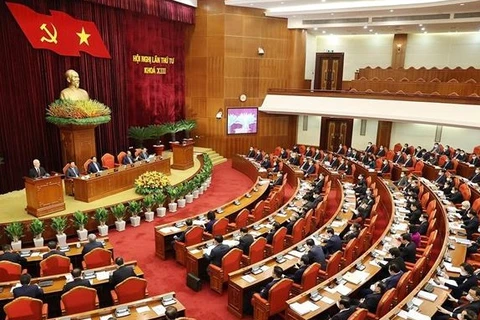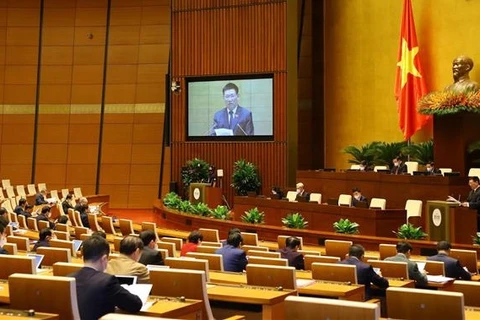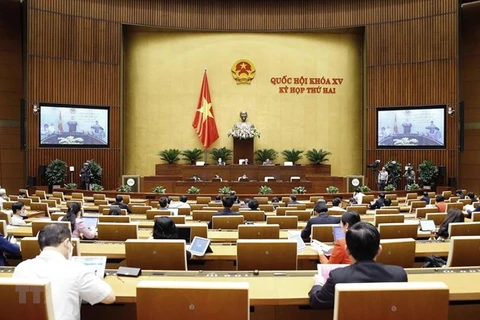Hanoi (VNA) – Lawmakers adopted Resolution on economic restructuring plan for the 2021-2025 period with 460 out of 465 approval votes during the ongoing second session of the 15th legislature in Hanoi on November 12.
The Resolution comprises five articles, including seven key target groups till 2025.
In the first group, the average labour output will increase by 6.5 percent annually while the total factor productivity will reach about 45 percent of the gross domestic product (GDP). The national competitiveness gap among ASEAN-4 countries will be narrowed, especially in terms of institutions, infrastructure and human resources.
In the second group, the State budget deficit will make up about 3.7 percent of the GDP on average. At least 10 percent of public non-buisness units will be reduced compared to 2021 while at least 20 percent of units will become financially autonomous.
In the third group, the total social investment capital will reach about 32-34 percent of the GDP. On-balance sheet bad debts of the whole system of credit institutions will be kept below 3 percent, towards gradually developing a professional debt market. All banks must meet Basel II standards.
In the fourth group, the total capitalisation of stock market will reach at least 85 percent of the GDP. The total outstanding debts of bond and corporate bond markets will account for at least 47 percent and nearly 20 percent of the GDP, respectively. The expenditure on science and technology will be no more than 1 percent of the GDP. The number of enterprises with technological innovation will rise by 15 percent annually on average.
There will be about 1.5 million enterprises, 60,000 – 70,000 of which will be on medium and large-scale in the fifth target group. The private sector’s contribution to the GDP will be around 55 percent while at least 5-10 national products will build their own international trademarks.
In the sixth group, the digital economy will account for 20 percent of the GDP. The ratio of digital economy in each sector will reach at least 10 percent.
By 2025, over 3,000 out of roughly 35,000 cooperatives will adopt technological advances in farm produce production and consumption. Some 35 percent of farming cooperatives will partner with firms in value chains.
The Resolution also outlines five key tasks for economic restructuring, including restructuring public investment, State budget, the system of credit organisations and public non-business units; developing various kinds of markets and improving the efficiency of resource allocation and use; developing enteprises, collective economy and cooperatives; developing urban economy and strengthening regional connectivity as well as upholding the role of key economic zones and major urban areas; restructuring sectors to achieve a green and sustainable economy.
The Government was also assigned to build an action programme before April 2022 to realise the Resolution, as well as submit annual, mid-term and end-term reports on the implementation of the Resolution to the legislature./.

























